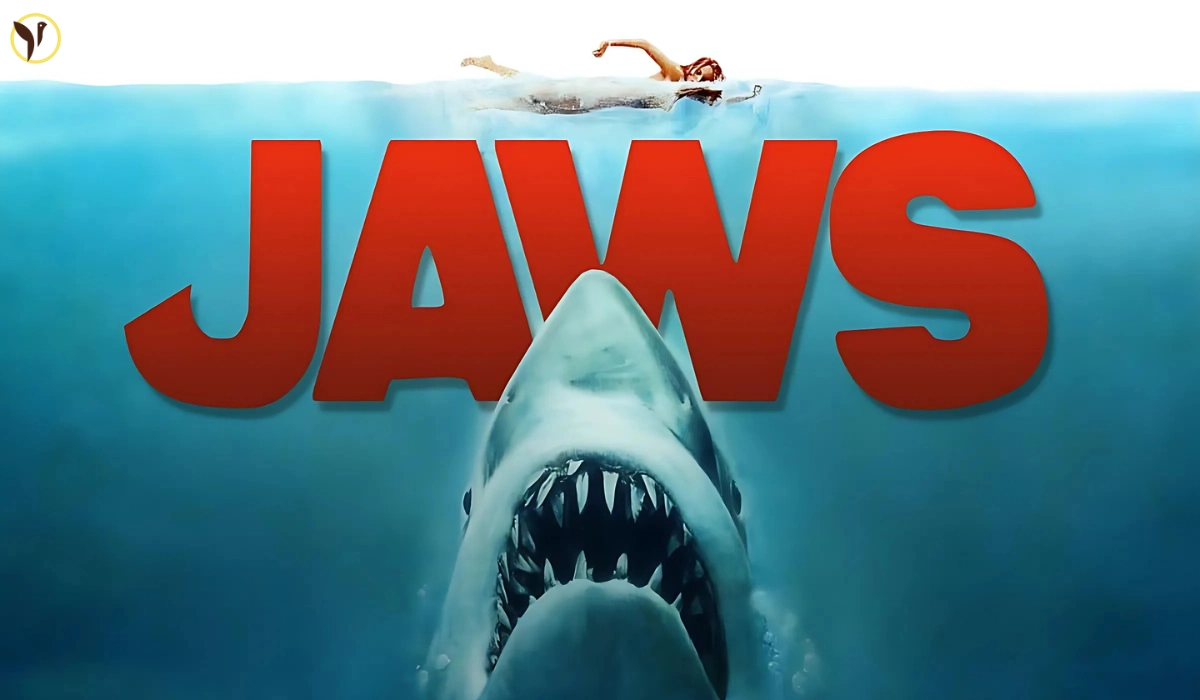A mere five decades have passed since the world first witnessed the terror-inducing power of Jaws, which was released on June 20, 1975, and today is widely considered to be one of the most culturally significant films in Hollywood.
What began as a troubled production featuring a mechanical shark that did not perform as designed ultimately resulted in the production of one of the most significant films in Hollywood history.
Jaws achieved more than "just" a box office take—for instance, it was outright revolutionary for the film launch strategy employed by the studio. Studios at the time opened a film in a few cities and added subsequent cities over time.
Universal Pictures took the risk to take a stand, and release Jaws nationally including an unprecedented full-scale publicity campaign.

The film grossed over $100 million alone in the first run, which led to a worldwide gross of nearly $480 million. This national release strategy was a prime driving force in shaping the summer blockbuster that we all know today.
Additionally, the suspense in Jaws stemmed not only from the story but from the limitations of the production design. The mechanical shark which was nicknamed "Bruce" often malfunctioned while shooting.
As a result, director Stephen Spielberg chose to use the shark less (in some scenes, not at all) and let the accompanying music and camera work build the suspense instead.
The decision to show less of the shark worked; moviegoers were captivated by the fear of what they could not see.
Shot in Martha's Vineyard, Massachusetts, the film turned the cute little seaside town into a place tourists flock to visit. Fans still come to the island to see locations from the film, including the iconic bridge where one of the shark attacks happens.
Fifty years later, Jaws is still an important anchor point in American cinema. It not only launched Spielberg's career but also shifted how studios conceptualized big-budget thrillers. A new documentary, Jaws @ 50, will come out this summer, and it will take a deeper look at the film's legacy and behind the scenes stories.
The Long-Lasting Effects on Shark Conservation
Jaws may have entertained audiences, but it also had severe consequences in the real world, especially for sharks. Following the movie release, fear of sharks significantly increased amongst the public and that included hunting sharks.
With many viewing sharks as dangerous predators instead of a critical part of the ocean ecosystem.
As marine scientists have detailed, the number of oceanic sharks and rays has declined by more than 70%, since 1970. Every year, over 100 million sharks are killed every year - with many of them due to a fishing overharvest, consumptive shark finning, and fear-driven hunting.
Experts continue to comment that Jaws was in part responsible that we are fearful of sharks
Peter Benchley, author of the book leading to Jaws, ultimately became a vocal advocate for shark conservation, accepting that the book and film may have contributed to the negative view of sharks. He spent his remaining life advocating to conserve sharks.

Lewis Pugh, a UN ocean ambassador completed a 62-mile swim around Martha's Vineyard in June 2025 to highlight the sharks' role in oceanic ecosystems and challenge the image of sharks as mindless murderers.
Throughout Pugh's multi-day swim, he remarked on the numerous number of sharks he observed, although none of them posed a threat to him, only a moment of curiosity from the wildlife.
The anniversary of Jaws has turned out to be a great vehicle to use by scientists and practitioners to raise awareness and mobilize public action for shark conservation.
Public engagement is occurring when scientists and practitioners are working with community members through documentaries, public speaker engagements, and community events to help people better understand sharks and what threatens them.
While Jaws resulted in decades of distortion and misunderstanding about sharks, experts are hopeful that the film's 50th anniversary may be a point of inflection.
In celebration of 50 years of #Jaws, the OG summer blockbuster hits theaters again with special screenings, events across Universal Destinations & Experiences, merch, on-the-water screenings on Martha’s Vineyard and all four films streaming on @Peacock. #Jaws50… pic.twitter.com/gezrCzzwV5
— NBCUniversal (@NBCUniversal) June 20, 2025
With the opportunity to rethink how we view sharks - as not monsters, but rather to appreciate their role in oceanic ecosystems- we may, in time, repair some of the damage caused by decades of fear.
As we all revisit the classic this summer, people will be able to appreciate its cinematic importance, as well as the very real animals it portrays and our responsibility to conserve them.
Source(Image / Thumbnail): cnn









